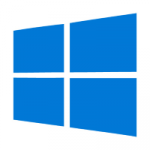 With Windows 10, Microsoft shifted a lot of their testing to users, through the Windows Insider program. Anyone can join the Insider program, and what you get is early access to new versions of Windows 10.
With Windows 10, Microsoft shifted a lot of their testing to users, through the Windows Insider program. Anyone can join the Insider program, and what you get is early access to new versions of Windows 10.
In return, you are expected to provide feedback to Microsoft when you encounter problems, primarily via the Windows 10 Feedback Hub app. I’ve used the Feedback Hub, and Microsoft does indeed seem to look at — and act on — user feedback.
While I do appreciate having the option of contributing to the quality of Windows 10, it seems clear that relying on users for testing is woefully inadequate, and hardly a substitute for systematic, formal software testing. Each new set of Windows 10 updates, and especially new versions, seem to cause more problems than they solve.
Windows 10 version 2004, released on May 27, is no exception. Microsoft has identified at least ten separate problems with the new version, mostly related to device drivers. Users unlucky enough to have the affected devices are reporting application crashes and good old Blue Screens of Death (BSODs). In some cases the new version renders affected computers unusable.
At least updates can now be delayed. Earlier versions of Windows 10 forced new updates on all computers. Without the ability to to put off updates, these unwanted and problematic changes would cause worldwide carnage at least every Patch Tuesday.
Hey, Microsoft. Thanks for giving us the option to help out with Windows testing. But please go back to doing more formal testing. Nobody needs these headaches. We’ve got enough problems without you piling on.
Update 2020Jun02: Microsoft has put a ‘compatibility hold’ on the recent problematic updates. If Microsoft decides that your device may have problems with an update, it won’t get installed until the hold is released. Of course that doesn’t help people who installed those updates before they were held.
 boot13
boot13